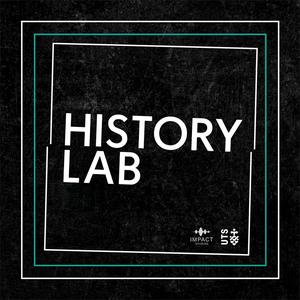Professor Heather Goodall was a pioneering historian whose research transformed understandings of Indigenous history, both in her field and in the broader community. Her work demonstrated a deep personal and professional commitment to social and environmental justice. In this episode we pay tribute to her and celebrate her legacy.
Heather died peacefully on 29 January 2026, aged 75. In this special episode, we hear her reflecting on her life’s work — more than five decades of historical research, teaching and community engagement.
Across two in-depth conversations with UTS historian Anna Clark, Heather traces the intellectual, political and personal threads that connect her work: oral history, Aboriginal land rights, rivers and environments, Indian Ocean networks, labour activism and the ethics of historical practice.
This is a conversation about history as activism, about place and belonging, and about the long afterlives of colonial power — but also about resilience, curiosity, and the joy of intellectual work done in company with others.
In Heather’s own words, “Scholarship can sit alongside activism, relationships and responsibility — it doesn’t have to be separate from life.”
From the Darling River to Salt Pan Creek, from Indian seamen in wartime Australia to the Battle of Surabaya and Indonesian independence, Heather’s scholarship consistently centred on people whose histories were ignored, dismissed, or actively erased — and asks what historians owe to the communities whose stories they tell.
To learn more about Professor Goodall, see her obituary published by the Royal Society of New South Wales,
Guests
Professor Heather Goodall was an Australian historian whose work spanned Aboriginal history, labour history, environmental history, Indian Ocean studies, and public history.
A leading figure in oral history and community-based research, she worked closely with Aboriginal organisations, activists, educators and communities for decades, helping to reshape how history is researched, written and shared in Australia.
Her publications include influential studies of the Darling River, Aboriginal land rights, Indian seamen and soldiers, and the Georges River, among many others. In 2025, she was awarded the History Council of NSW’s Annual Citation for fifty years of historical research and community engagement. Her book Invasion to Embassy won the 1996, NSW Premier Prize for Australian History. Over a long career at UTS, Goodall became a leading figure in Australian historiography, recognised through major ARC grants and influential publications. She was appointed Emeritus Professor on her retirement in 2016.
Associate Professor Anna Clark is an historian and public commentator based at the Australian Centre for Public History at UTS. Her book, Making Australian History, was published by Penguin in 2022 and was longlisted for a Walkley Award and an NIB Literary Award. I'm also the creator of the successful podcast for primary schools, Hey History!
Credits
Executive Producer, Sarah Gilbert. Mixed by Siobhan Moylan
Find more episodes of History Lab wherever you get your podcasts.


